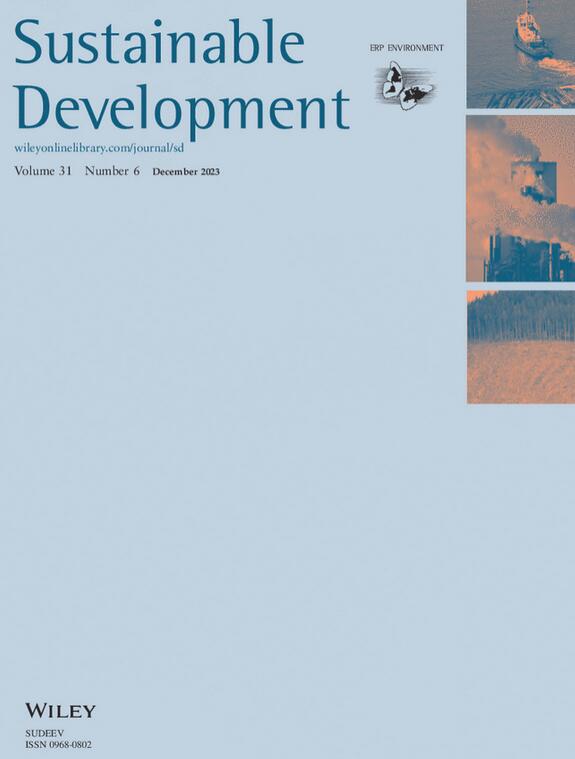通过宗教环境参与实现可持续发展?瑞士的证据
IF 9.9
1区 环境科学与生态学
Q1 DEVELOPMENT STUDIES
引用次数: 0
摘要
本文探讨了瑞士宗教组织参与实现与环境相关的可持续发展目标(SDGs)的情况及其障碍。为此,文章对积极参与环境可持续发展的教会代表进行了半结构化访谈。我们使用了一个包含五种资本的地球边界框架;自然资本和物质资本,指环境(如增加生物多样性的工作)和建筑/物质结构(如通过光伏板/能源改造项目);金融资本(如成本效益);社会/象征资本(如公共宣传)和人力资本(如教育活动)。结果表明,正在采取实质性措施提高参与度。这主要归功于 Oeku 等信仰组织和 Eco-Eglise 等平台。然而,在方法上仍然存在差异,尤其是在立法和财务问题、工作人员角色模糊以及人员和时间资源管理方面存在重大矛盾。本文通过揭示宗教参与环境相关可持续发展目标的障碍,为可持续发展方面的学术研究做出了贡献。同时,文章还强调了伞式组织在增强和加快宗教参与环境活动方面的潜力。本文章由计算机程序翻译,如有差异,请以英文原文为准。
Sustainable development through religious environmental engagement? Evidence from Switzerland
This article examines the engagement of religious organizations in addressing environment‐related sustainable development goals (SDGs) in Switzerland and its barriers. To this end, it draws upon semi‐structured interviews with church representatives who are actively engaged in environmental sustainability. We use a planetary boundaries framework with five capitals; natural and physical capital, which refer to the environment (e.g., work to increase biodiversity) and buildings/physical structures (e.g., through PV panels/energy retrofitting projects); financial capital (e.g., cost‐effectiveness); social/symbolic capital (e.g., public campaigning) and human capital (e.g., educational campaigns). The results show that substantial steps are being taken to increase engagement. This is largely due to faith‐based organizations such as Oeku and platforms such as Eco‐Eglise. However, approaches remain heterogeneous with significant tensions, particularly concerning legislative and financial issues, staff role ambiguity, and staff and time resource management. This article contributes to academic research on sustainable development by shedding light on the barriers of religious engagement in environment‐related SDGs. At the same time, it highlights the potential of umbrella organizations in augmenting and accelerating religious environmental engagement.
求助全文
通过发布文献求助,成功后即可免费获取论文全文。
去求助
来源期刊

Sustainable Development
Multiple-
CiteScore
17.30
自引率
11.20%
发文量
168
期刊介绍:
Sustainable Development is a publication that takes an interdisciplinary approach to explore and propose strategies for achieving sustainable development. Our aim is to discuss and address the challenges associated with sustainable development and the Sustainable Development Goals. All submissions are subjected to a thorough review process to ensure that our readers receive valuable and original content of the highest caliber.
 求助内容:
求助内容: 应助结果提醒方式:
应助结果提醒方式:


